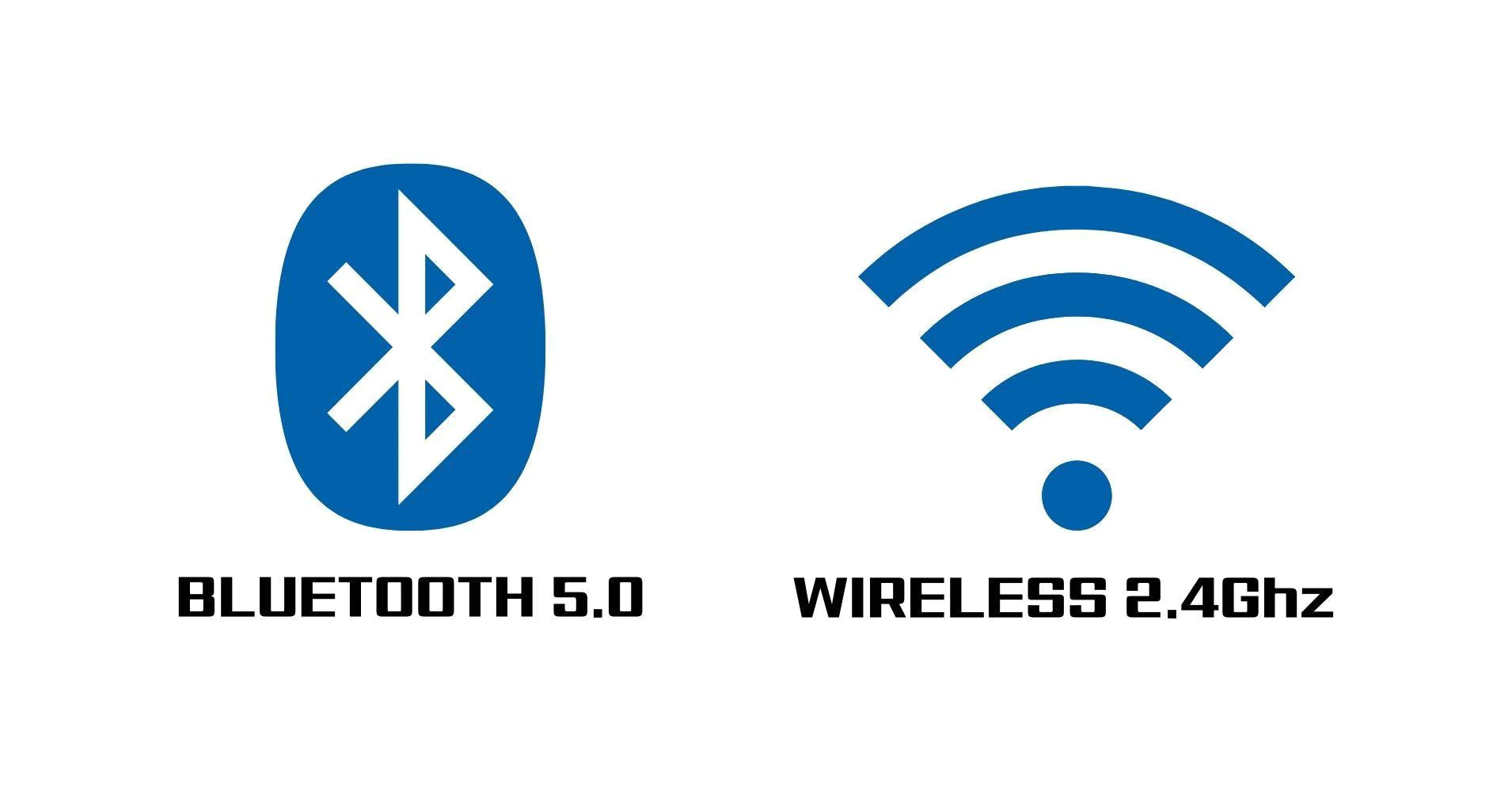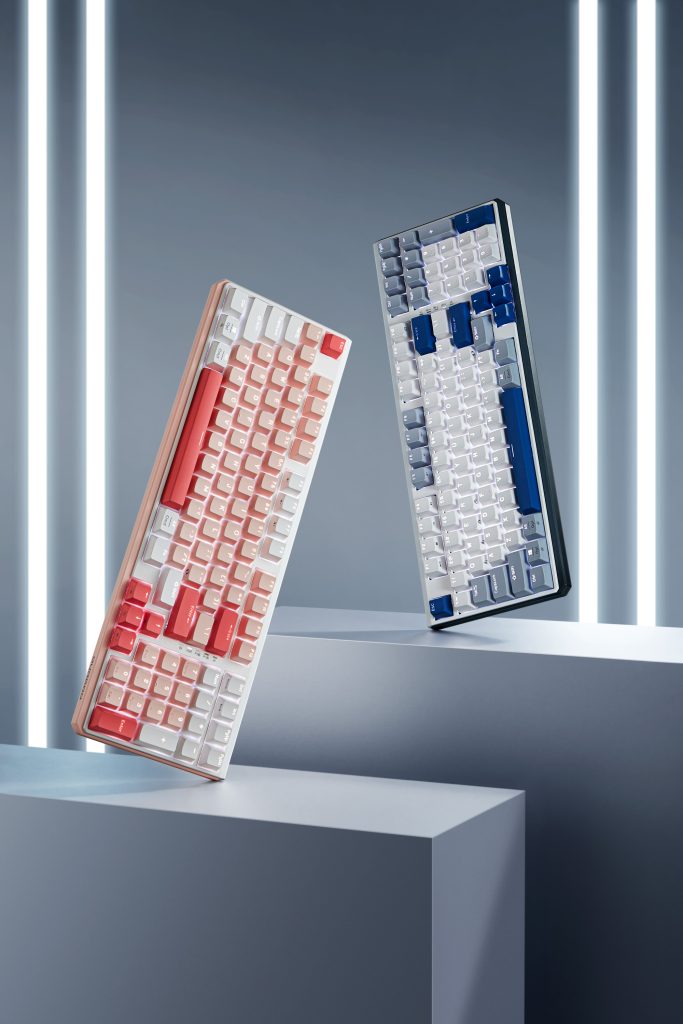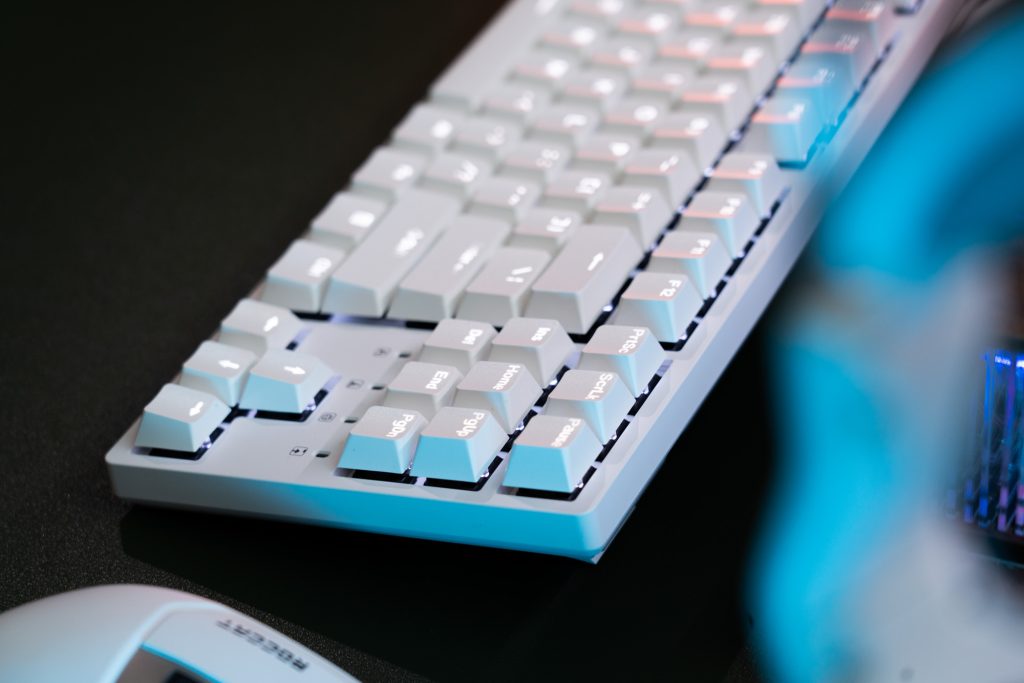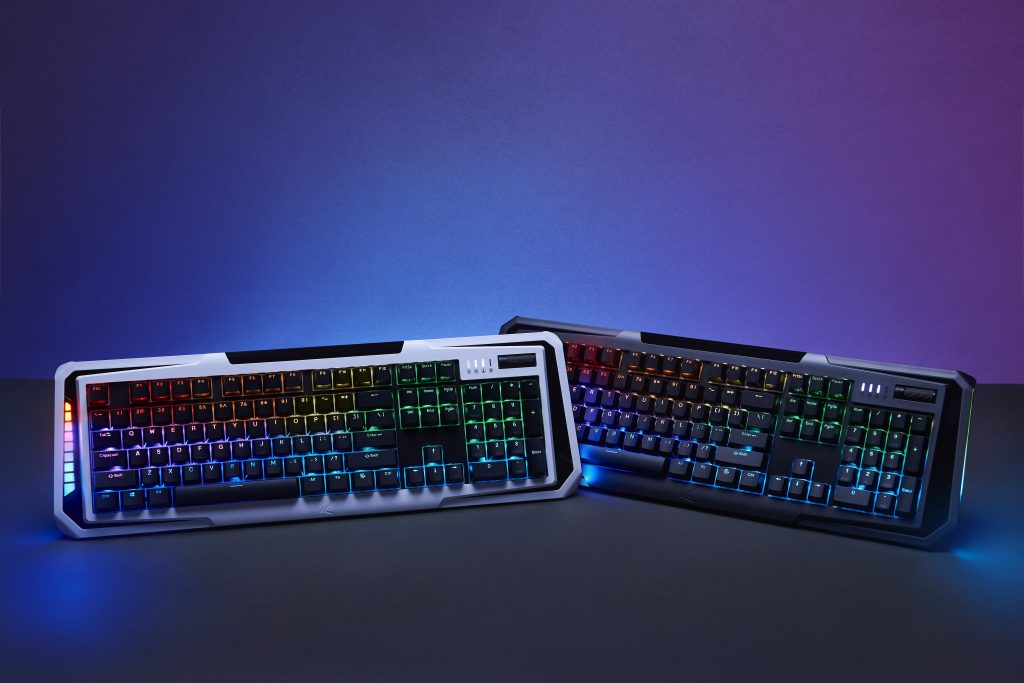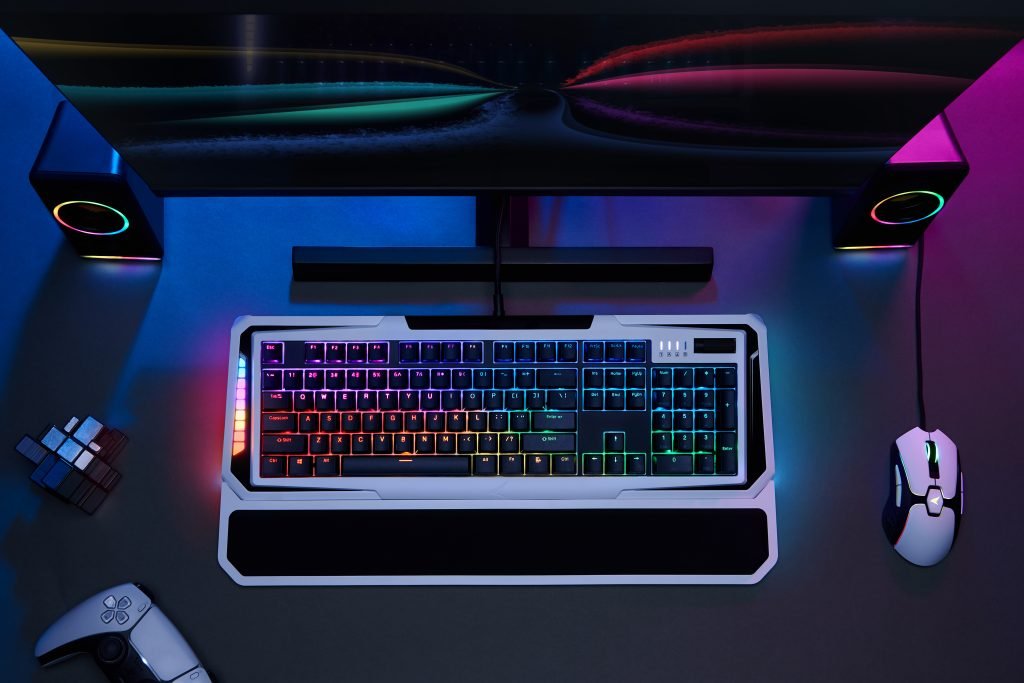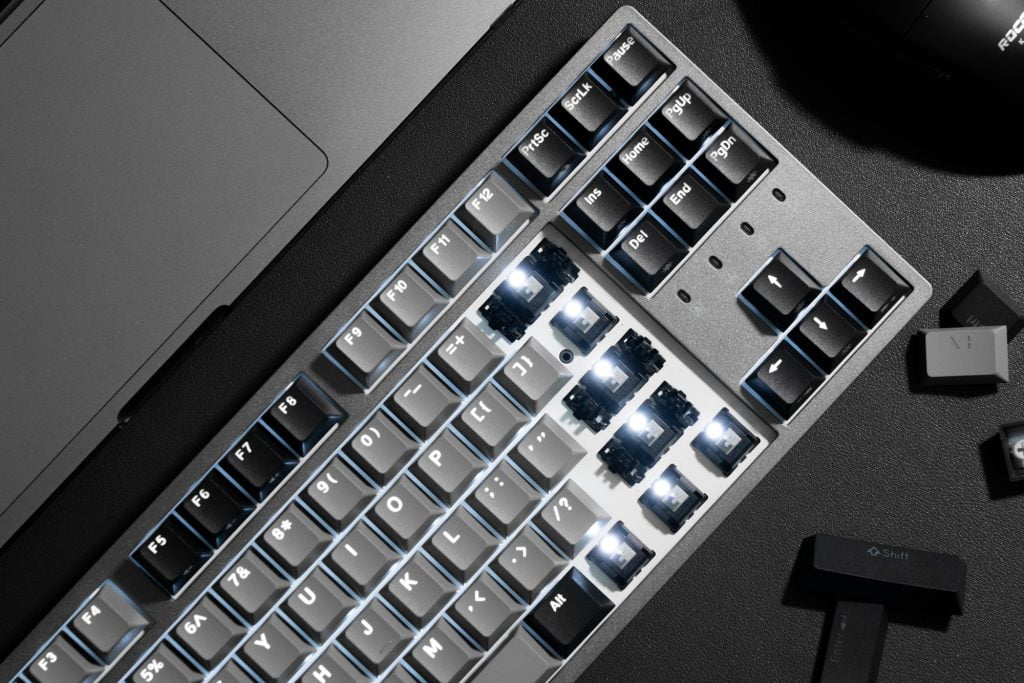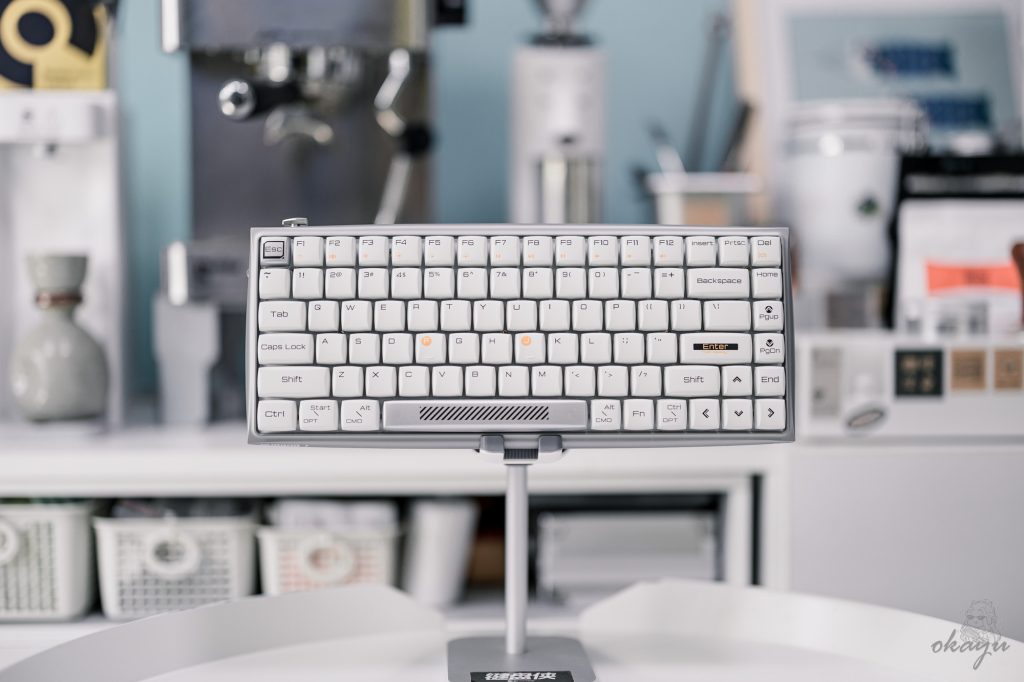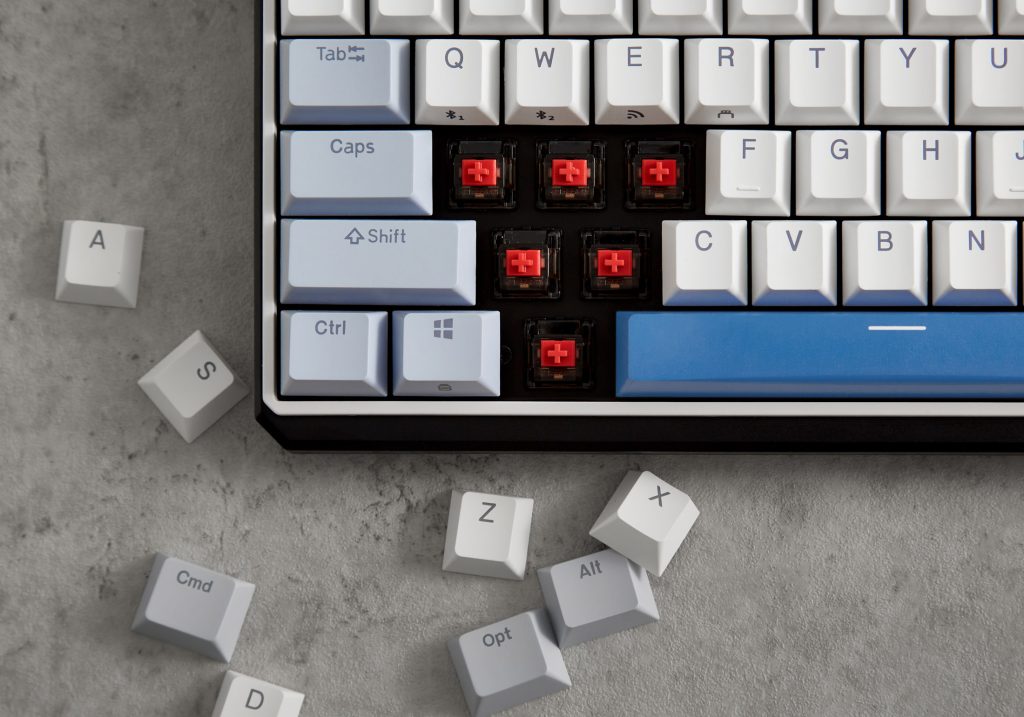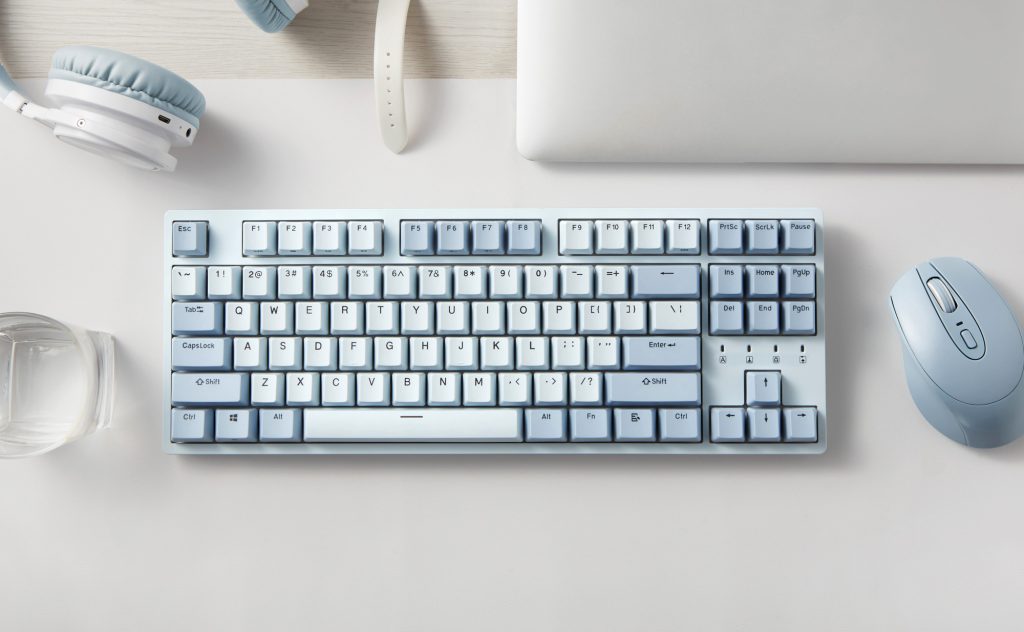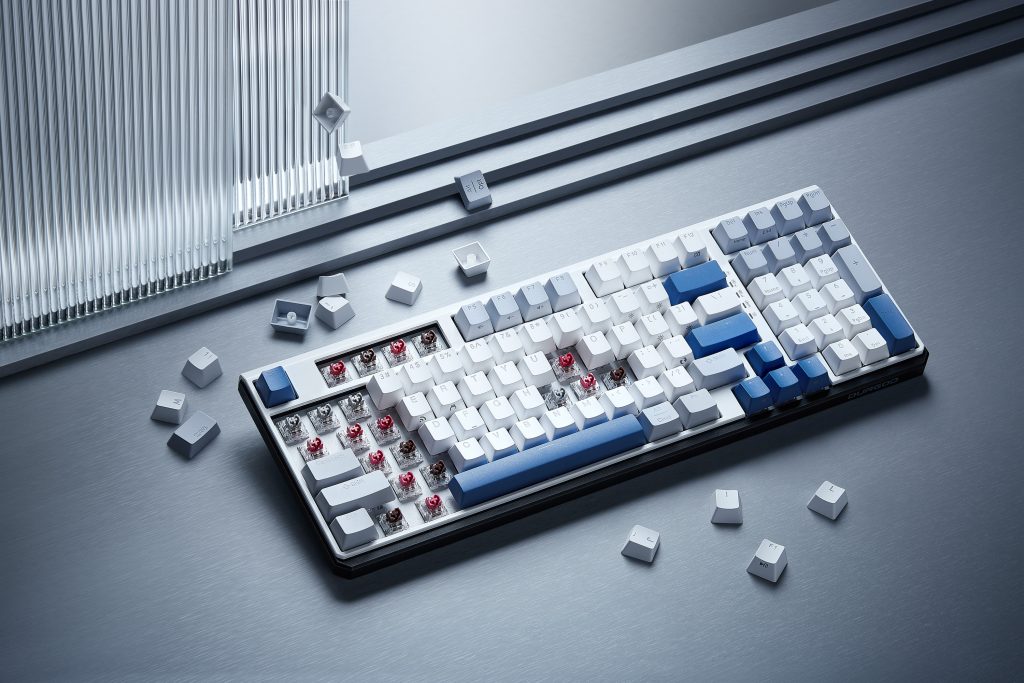When comparing 2.4GHz and Bluetooth technologies for wireless mechanical keyboards, each has its distinct advantages tailored to specific user preferences. Let’s dig more deeply into Mechanical Keyboard 2.4GHz vs. Bluetooth through this blog!
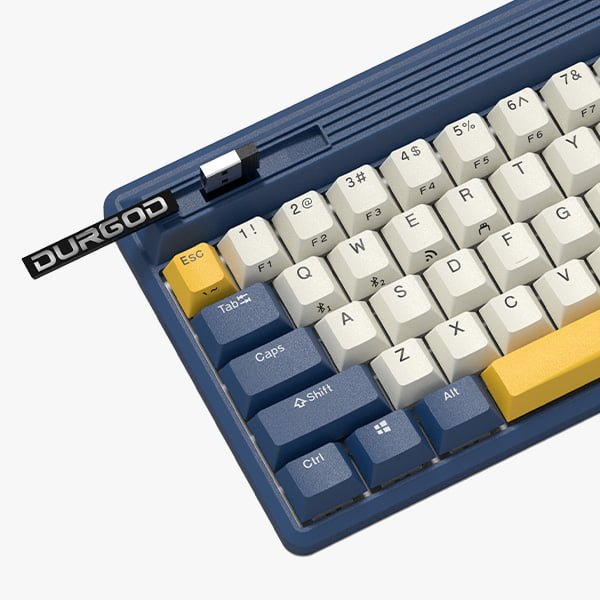
2.4GHz Wireless Keyboards
Pros:
- Lower Latency: Typically, 2.4GHz keyboards offer lower latency, thus, they’re more suited for gaming and tasks requiring quick responses.
- Dedicated Dongle: Provides a more stable and reliable connection via a USB receiver.
- Ease of Multi-Device Use: Simplifies switching between devices using the same dongle, beneficial in a multi-device setup.
- No Bluetooth Device Interference: Operates on a separate frequency, avoiding disruption from Bluetooth devices.
Cons:
- USB Port Usage: Requires one USB port for the dongle, which could be inconvenient on devices with limited ports.
- Range Could Be Better: While usually adequate, its range might not reach as far as Bluetooth’s.
- Dependent on USB-A Compatibility: Only compatible with devices that support USB-A, barring the use of an adapter.
Bluetooth Keyboards
Pros:
- Broad Compatibility: Works seamlessly across a wide range of devices, including smartphones and tablets, without needing a USB port.
- No Dongle Necessary: Eliminates the need for a USB dongle, freeing up ports on devices with limited connectivity.
- Superior Range: Generally provides a longer range than 2.4GHz connections.
- Facilitates Multi-Device Pairing: Allows pairing with multiple devices and easy switching between them.
Cons:
- May Face Latency Issues: Despite improvements, Bluetooth can experience higher latency, potentially affecting gaming performance.
- Prone to Interference: More likely to face disruptions from other wireless and Bluetooth devices.
- Higher Power Consumption: Bluetooth usage can lead to quicker battery depletion in keyboards.
Making the Choice
- For Gamers: 2.4GHz keyboards are preferred for their reduced latency and stable connection.
- For General Use and Mobility: Bluetooth excels in versatility and convenience, particularly for users valuing compatibility with various devices without the hassle of a dongle.
- Considering Device Compatibility: Bluetooth is advantageous for connecting with mobile devices or when USB ports are at a premium.
- In Multi-Device Setups: Bluetooth keyboards supporting multi-device pairing are ideal for users who frequently switch between devices.
In essence, while 2.4GHz wireless keyboards are favored for gaming and activities requiring low latency, Bluetooth keyboards stand out for their flexibility, wide device compatibility, and convenience in multi-device environments.
For more knowledge of mechanical keyboards, visit DURGOD.



